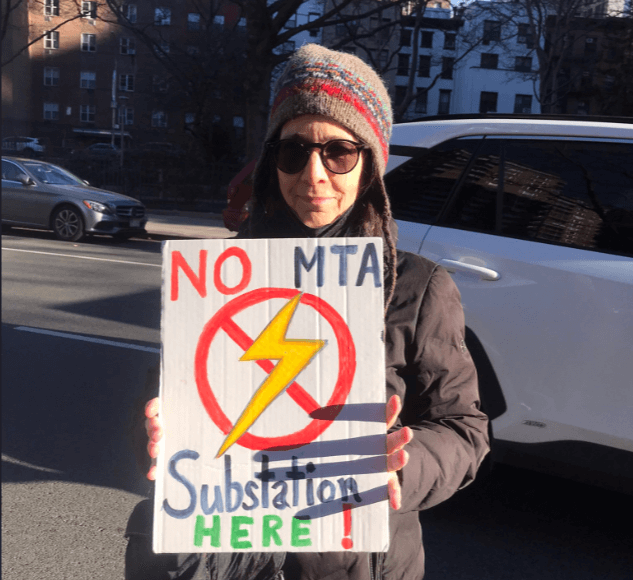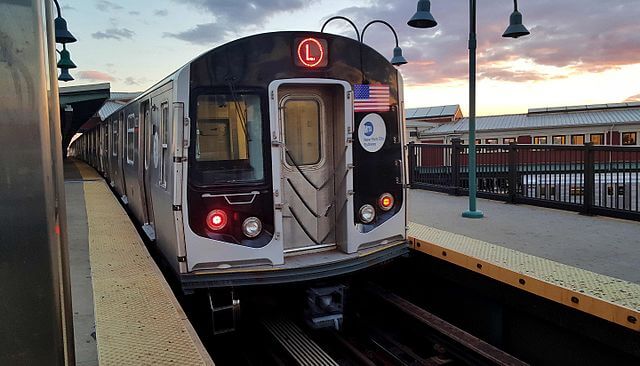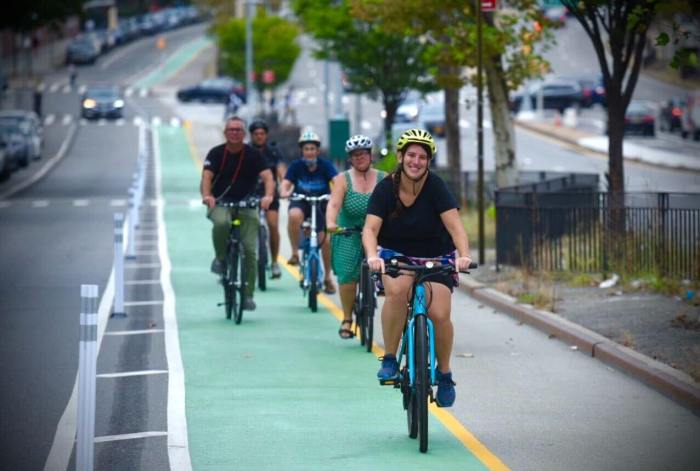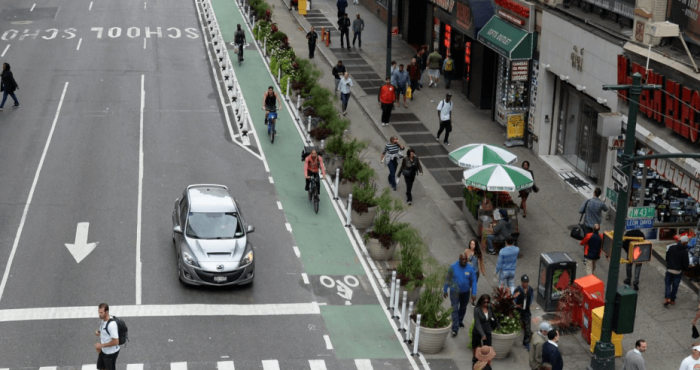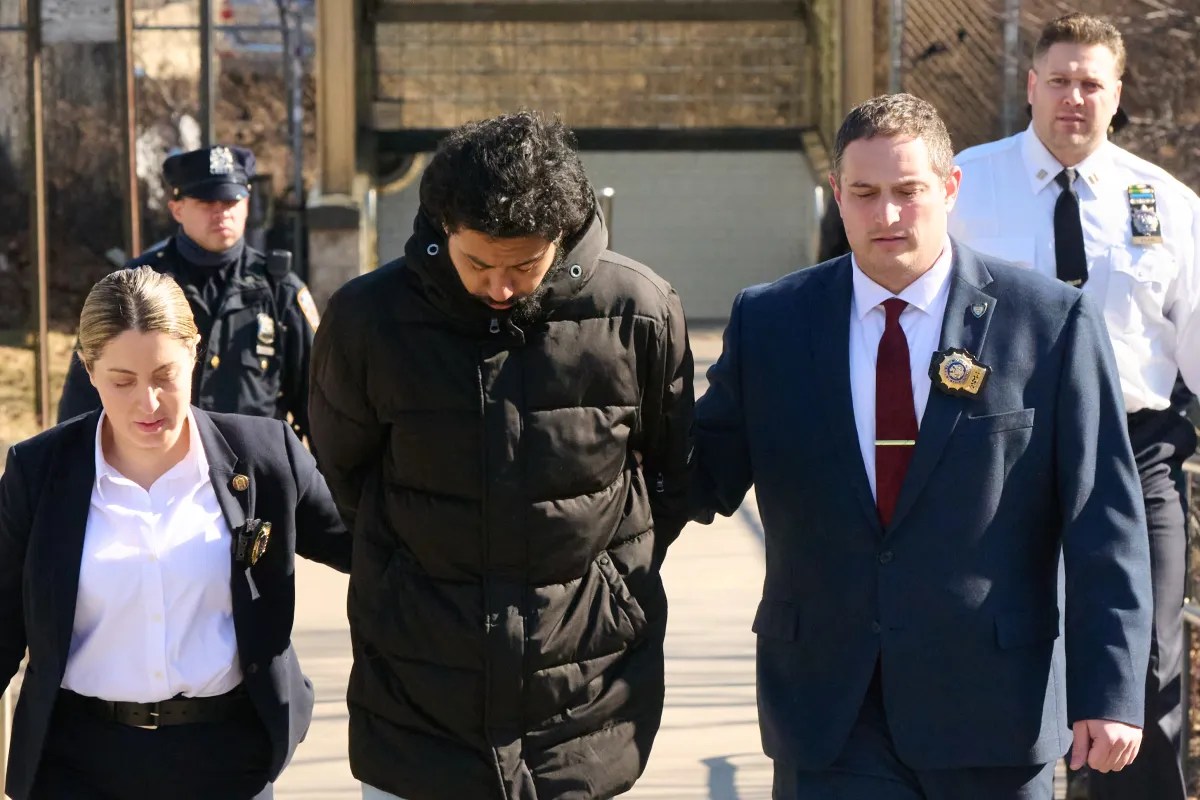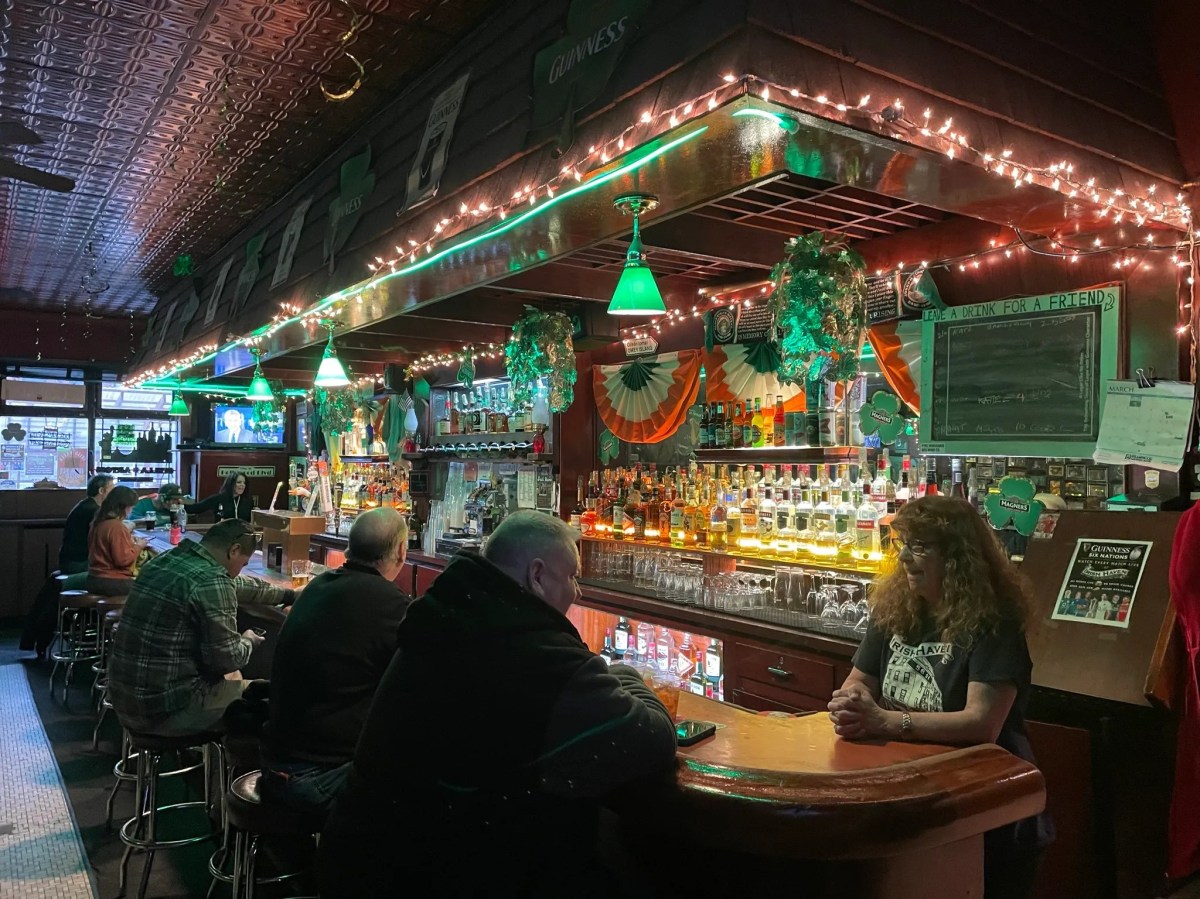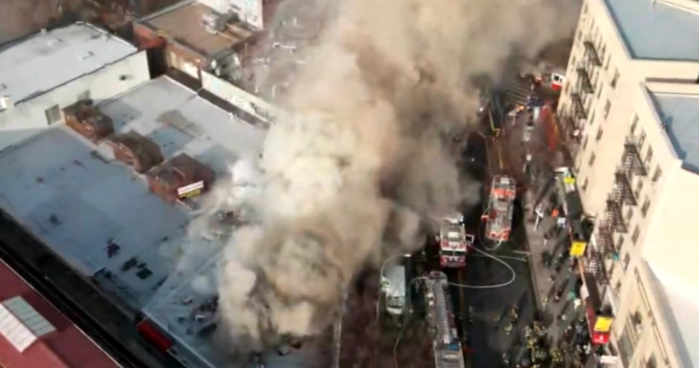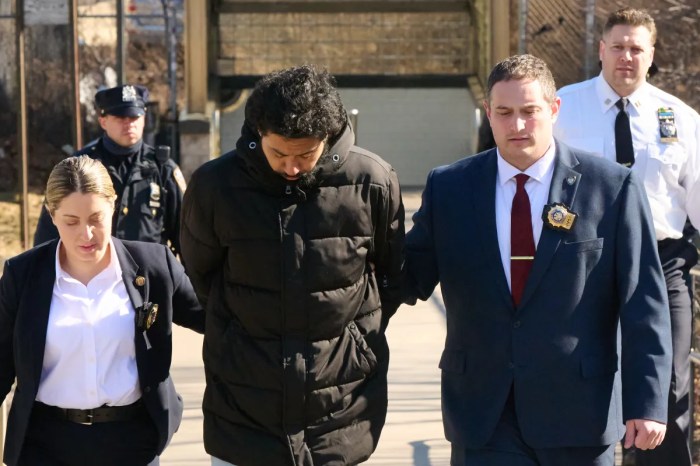Construction kicked off Monday on a new electrical substation for the MTA’s 8th Avenue subway line in Chelsea over the very public fury of some residents at a co-op complex directly above the site.
Ground has been broken for the new substation, on West 28th Street between 8th and 9th Avenues, within Penn South, a 5,000-resident co-op development composed of 10 towers, with an especially large senior population.
The MTA says that the new substation is necessary to support an expected boost in service capacity on the 8th Avenue line once the agency fully installs modern communication-based train control (CBTC) signaling on the A/C/E between Columbus Circle and High Street in Brooklyn Heights. Both CBTC and the substation — situated about halfway between existing stations at 59th Street and Greenwich Street — are expected to be installed and online by 2025; the substation project is budgeted to cost $80 million, the MTA says.
But many area residents, particularly those living in Penn South, are bitterly opposed to the project. Several dozen of them turned up Monday morning for a protest and march along 8th Avenue, parading up to Penn Station while chanting “No way, MTA!” in the hopes of getting the authority to back off.
Penn South is recognized as a naturally-occurring retirement community and is home to thousands of seniors — many of whom worry about potential interruptions to electrical service, years of noise and disruption, and even potential catastrophes as the project gets underway.
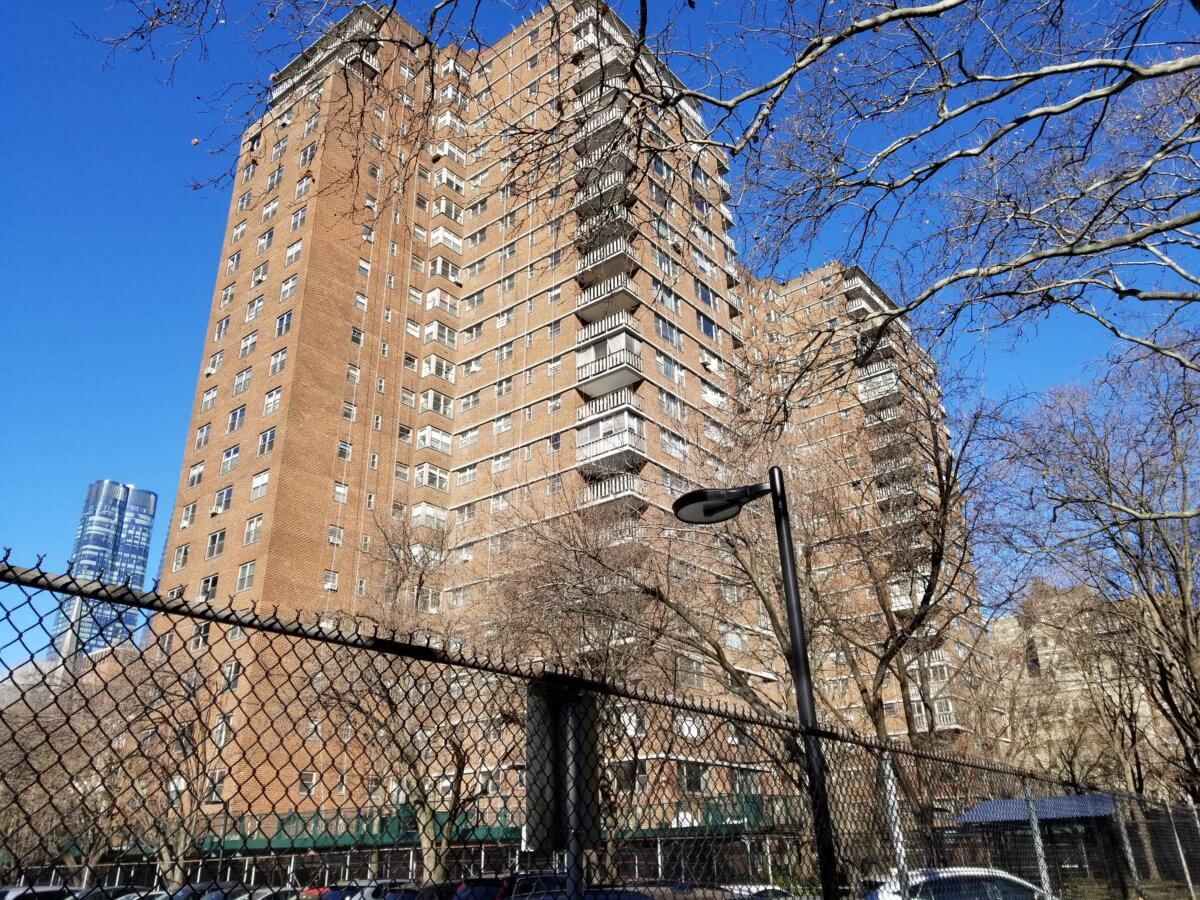
“We have elevators. If there were some kind of catastrophe, and there have been fires in substations, we would not be able to evacuate this many seniors. Seniors can’t run down 17 flights of stairs if they have a walker,” said Amy Scarola, a nine-year Penn South resident and opponent of the project, in an interview. “They said the electricity may go on and off. There are people on life support here, there are people with medical facilities that have to be plugged in.”
The MTA originally identified 28th Street as the optimal location while scoping the project in 2018. Nevertheless, after considering 30 alternative sites the MTA went with its gut and selected Penn South.
The agency argues it’s the best site for the substation due to its proximity to train tracks; will pose comparatively minimal issues regarding utility lines during the dig; will not require street closures; and no Penn South buildings are within 75 feet of construction — vital points in a city where virtually every inch above and below ground is occupied.
The MTA insists that the substation is emissions-free and won’t cause air pollution, and following construction, any noise from the generator will blend into the background.
Nevertheless, Penn South residents say the MTA hasn’t given adequate justification for choosing 28th Street over alternative sites they view as more appropriate for the project.
The authority shot down a proposal to place the substation at the nearby Fashion Institute of Technology, arguing it was a “less optimal” choice due to the “potential safety hazard” of siting near FIT’s Dubinsky Student Center, along with narrow street width on 28th STreet and the presence of dual construction work at the school.
That doesn’t sit well with Penn South residents, who argue the work will also present massive disruption and safety issues for them as well.
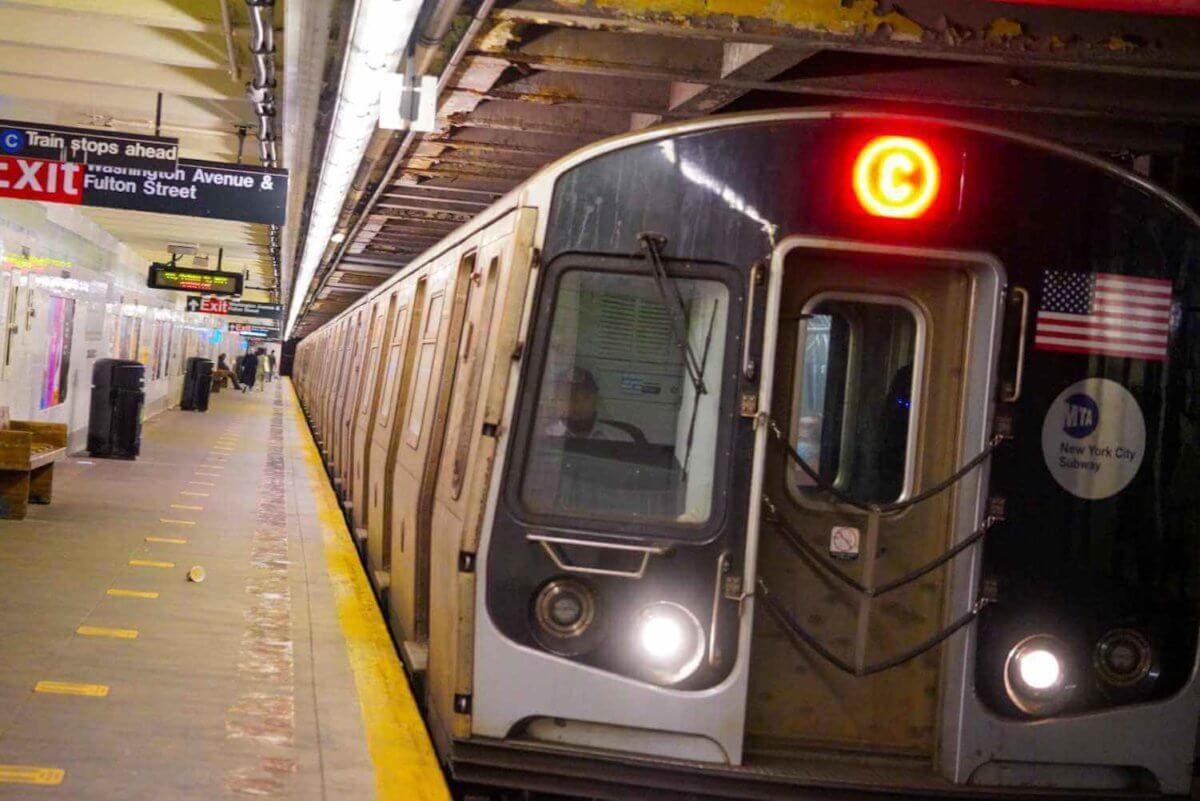
“We don’t want to push it off on FIT. But if they are going to do that and have that argument, those are temporary residents, and we’re permanent residents,” said Mark Bloch, husband of Scarola and a fellow 9-year resident of Penn South. “We’re not in favor of any residents anywhere getting this thing pushed on them, but there are those types of considerations.”
Another promising alternative site was on 31st Street, where the MTA studied affixing the substation underneath a new pedestrian plaza at Moynihan Train Hall. The authority says that site was stricken from contention due to the sheer amount of infrastructure already in place there, serving Amtrak and the Long Island Rail Road. Had that site been selected, says the MTA, they would not be able to build the substation to the specifications needed to support CBTC.
Community members tried various political engagement methods, including sending a letter to the MTA which resulted in the agency committing to limit hours for noisy work, come up with a noise mitigation plan, and for construction not to encroach on Penn South’s beloved greenspace.
Nevertheless, with construction commencing, residents are still displeased, and have turned to another avenue to try to stop the project: in November, they filed a lawsuit in state Supreme Court seeking an injunction to stop the project, and to force the MTA to conduct a full environmental review. Petitioners argue the MTA’s 134-page “Environmental Due Diligence Assessment” published in August of last year is not in keeping with state and city laws requiring full environmental impact statements.
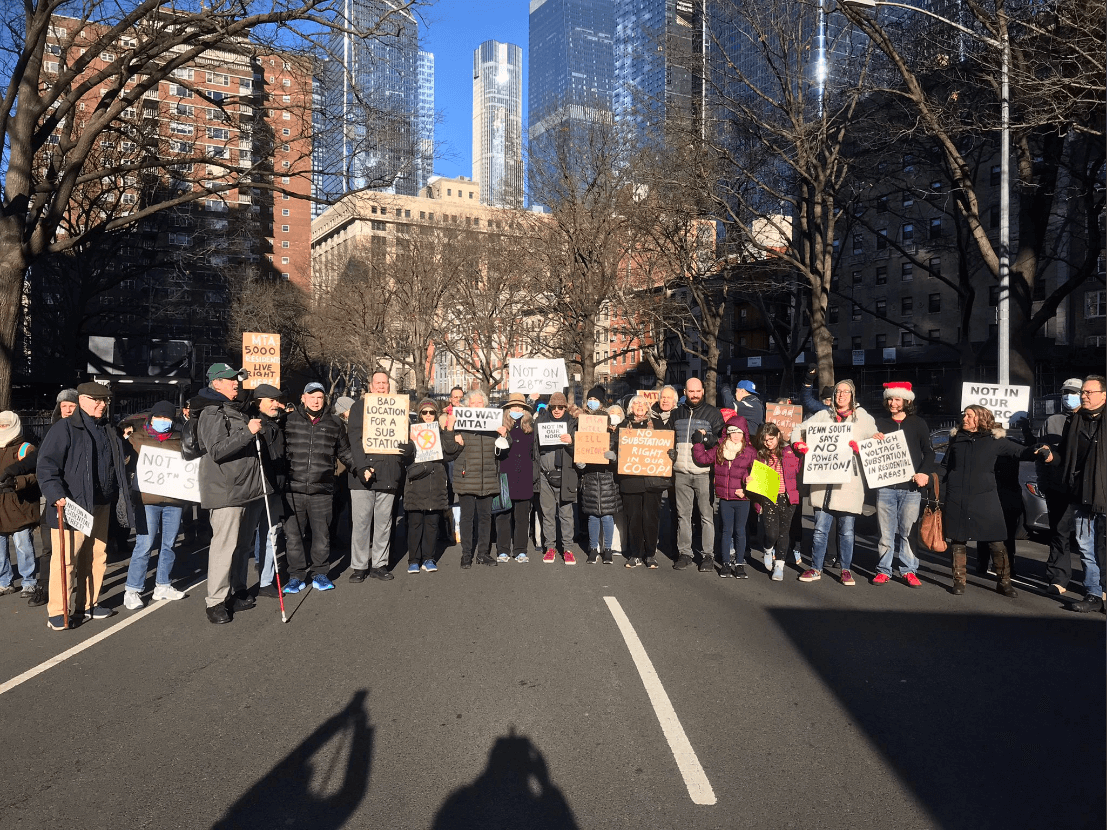
Among other things, the complainants argue substation construction will cause irreparable harm to adjacent nonprofits serving Chelsea residents, like the AIDS Healthcare Foundation, a soup kitchen feedings thousands of New Yorkers per day, and a group home for people with cerebral palsy.
They also contend there are environmental dangers in the MTA’s plans to excavate utility lines, and that during and after construction there’s a risk of explosion.
Reached for comment, the MTA directed amNewYork Metro to the agency’s Frequently Asked Questions page on the substation. The parties are due back in court on Feb. 17 for a status conference.
The first phase of construction, which will last about three months, mainly involves preliminary excavation and contingency work with existing utilities. That will last till April, to the chagrin of Penn South residents already gearing up for another big construction project, a 200-unit mixed-income development at 26th Street and 8th Avenue on a site presently occupied by a McDonald’s and Gristedes grocery store.
“We’re gonna have dual construction, dual noise, dual boring in the Earth, and it’s not necessary here,” said Luana Green, a 15-year Penn South resident and member of the co-op board, and outgoing president of the Chelsea Reform Democratic Club. “We want a fair review of all the other areas…we don’t want it here because we don’t want the disruption to our neighbors.”



